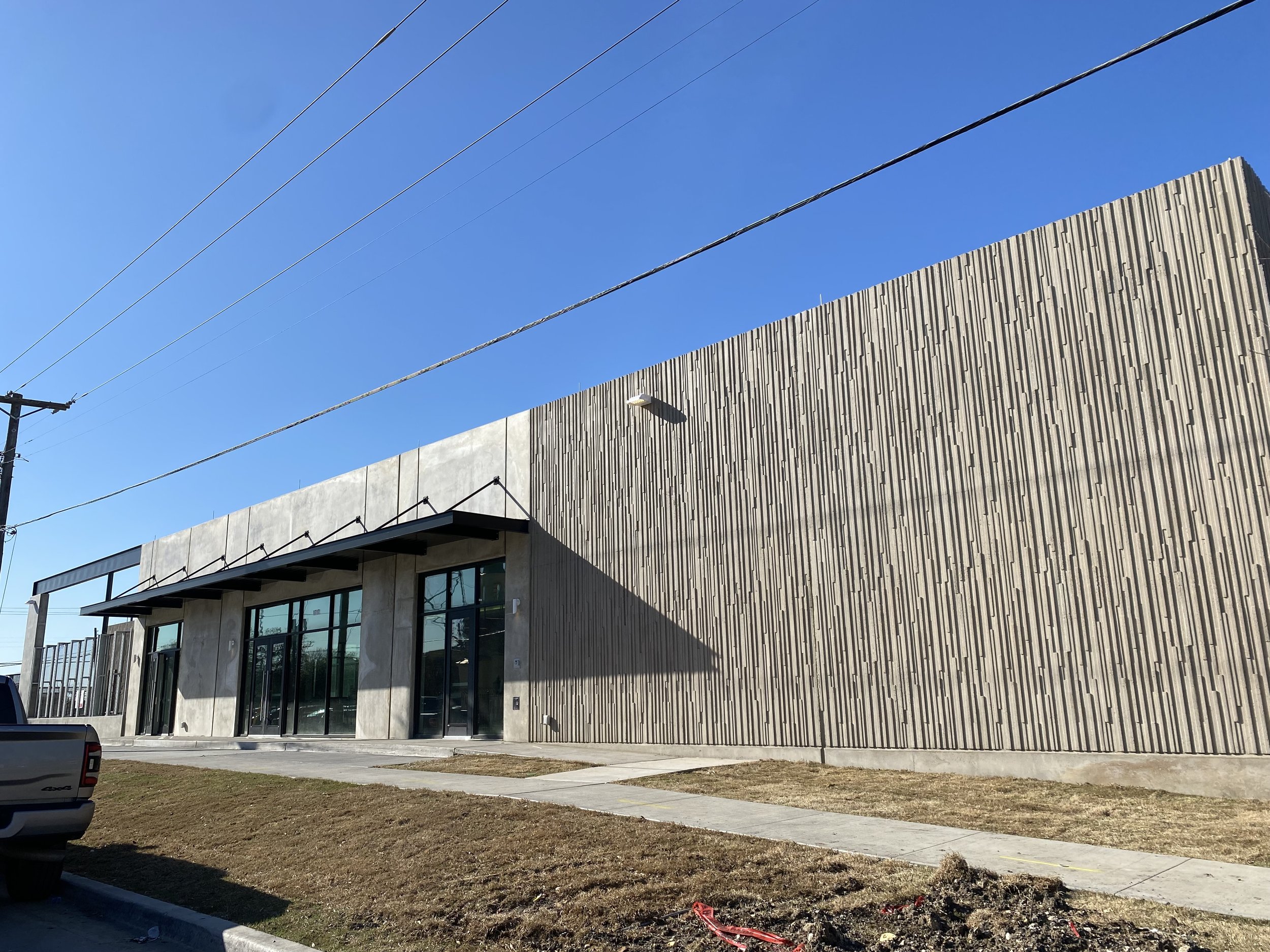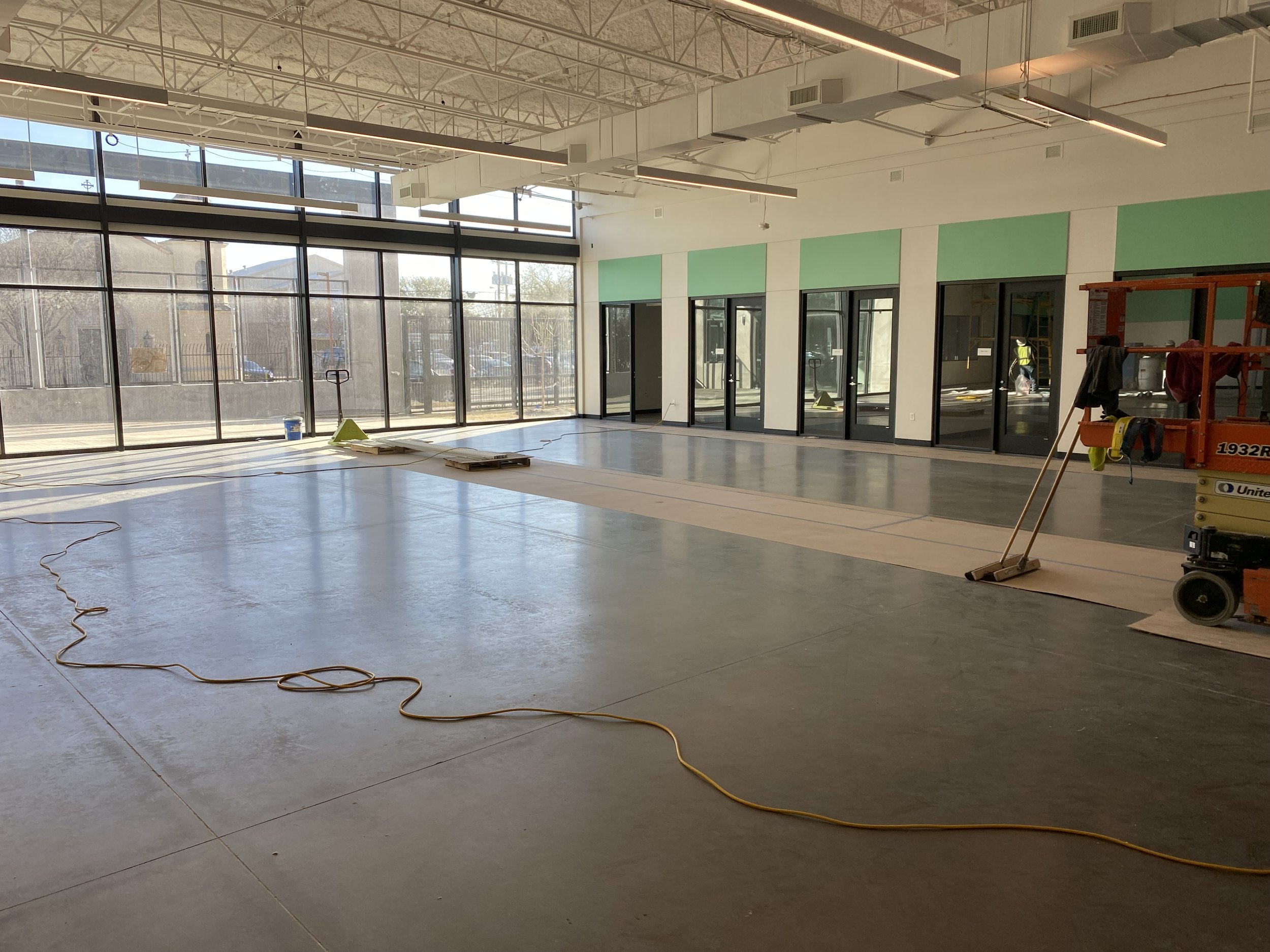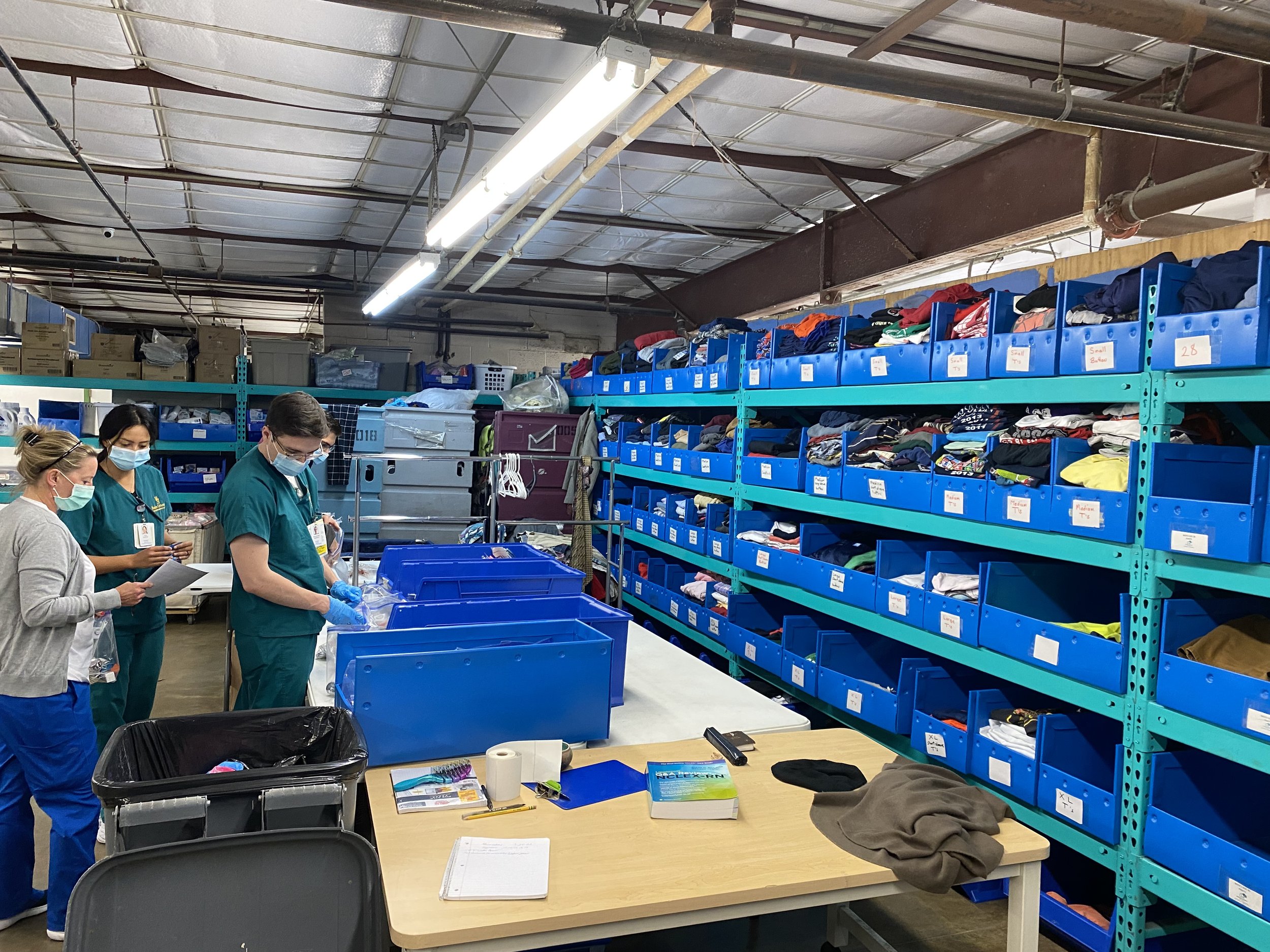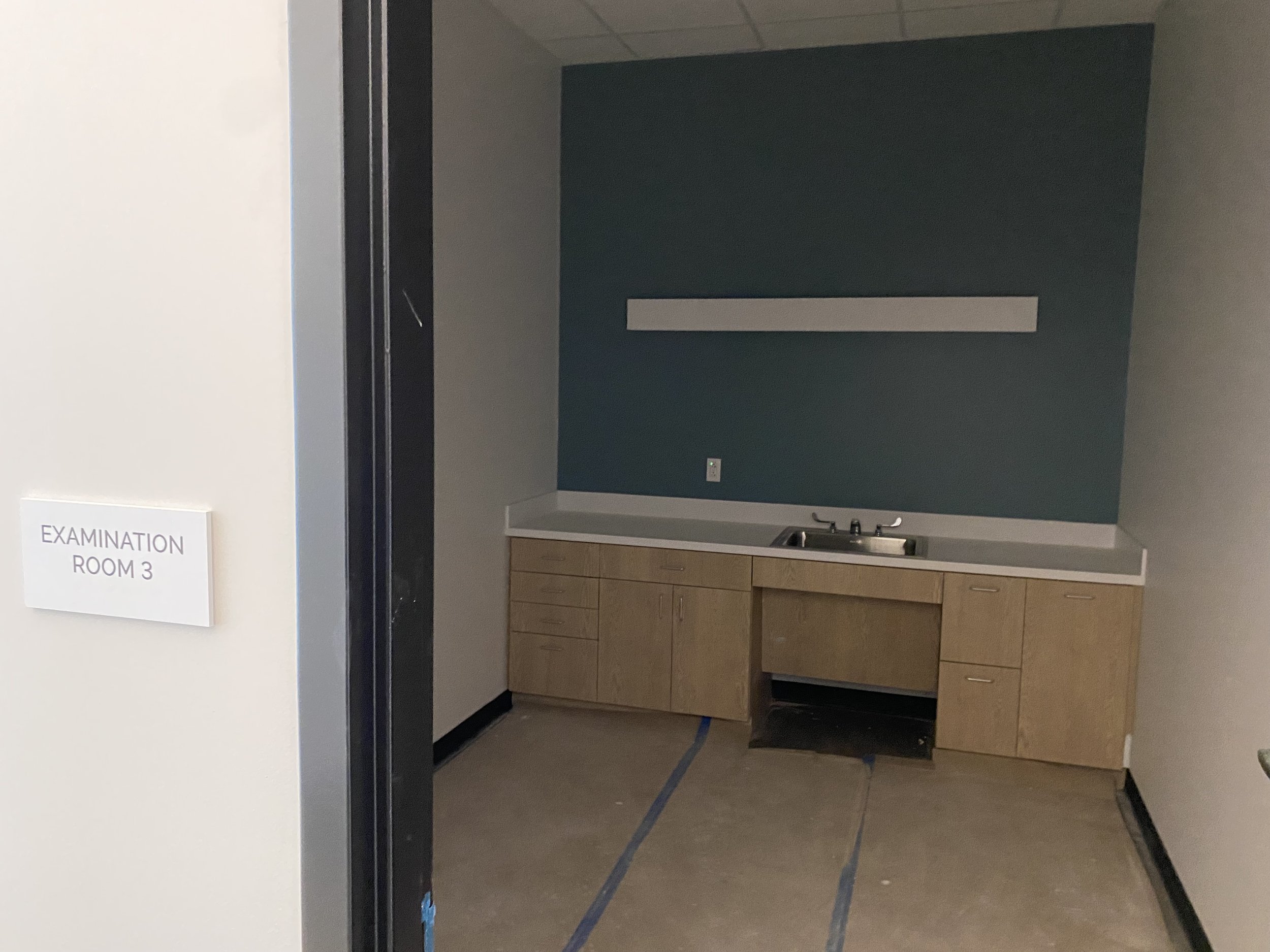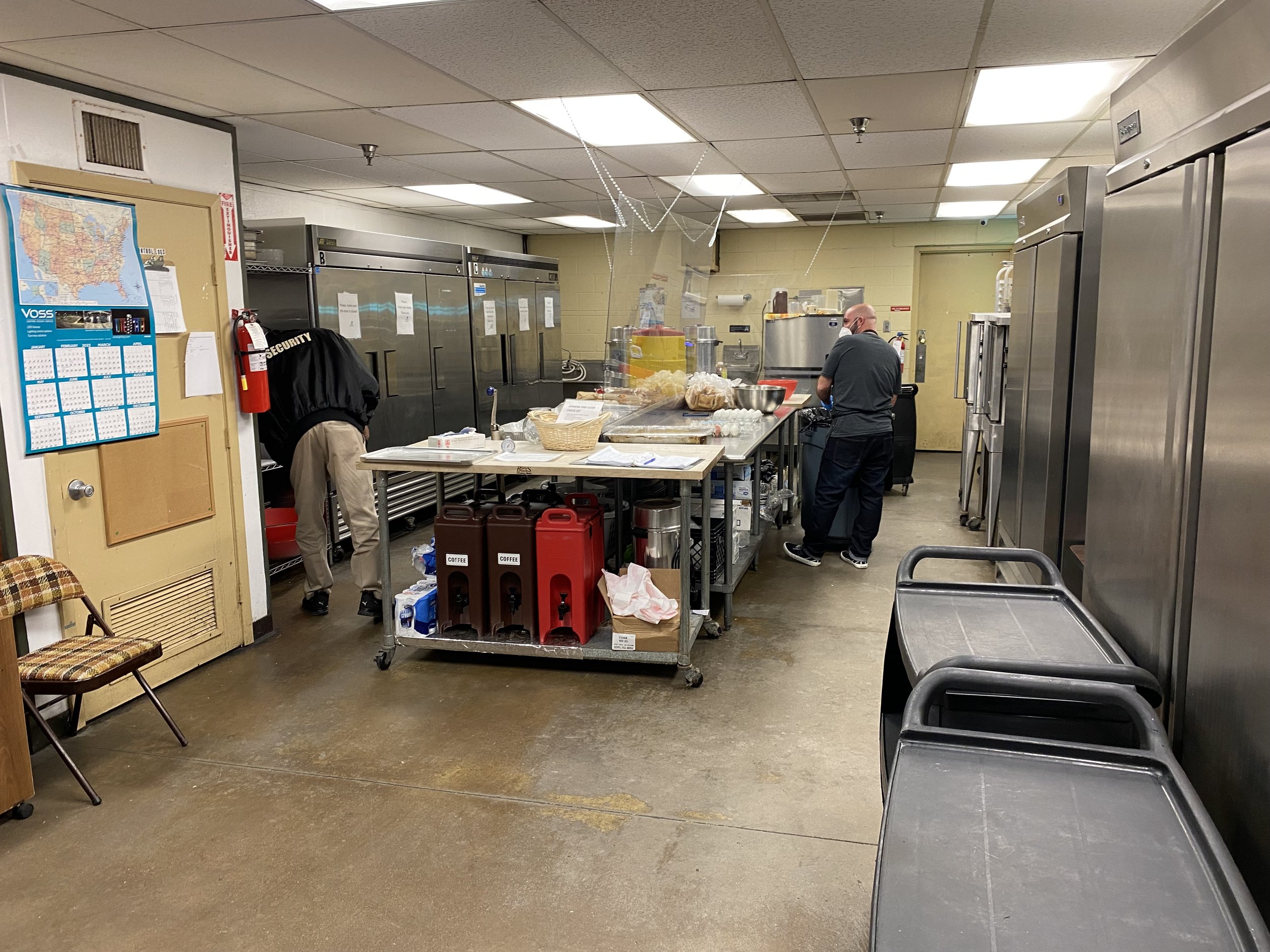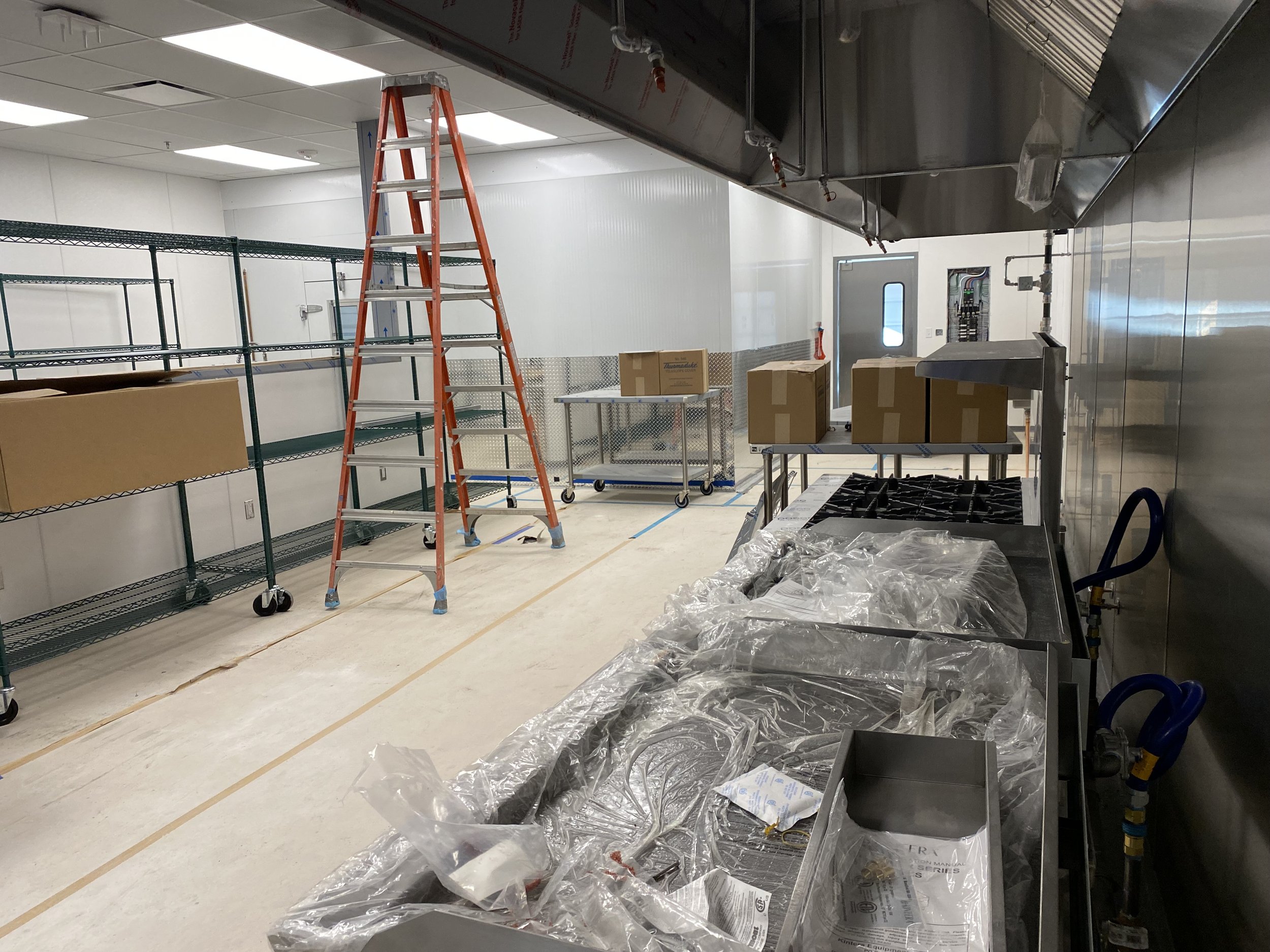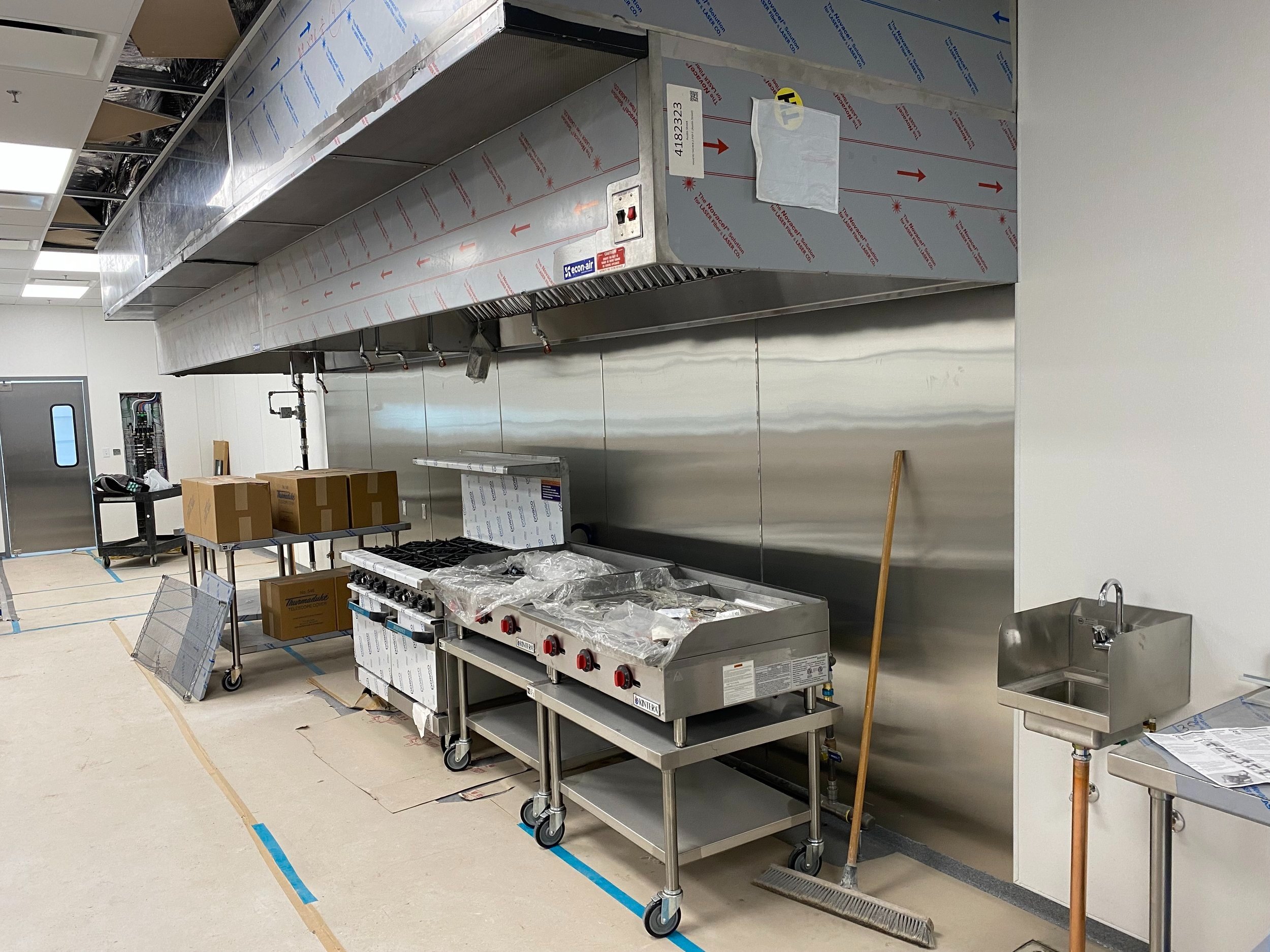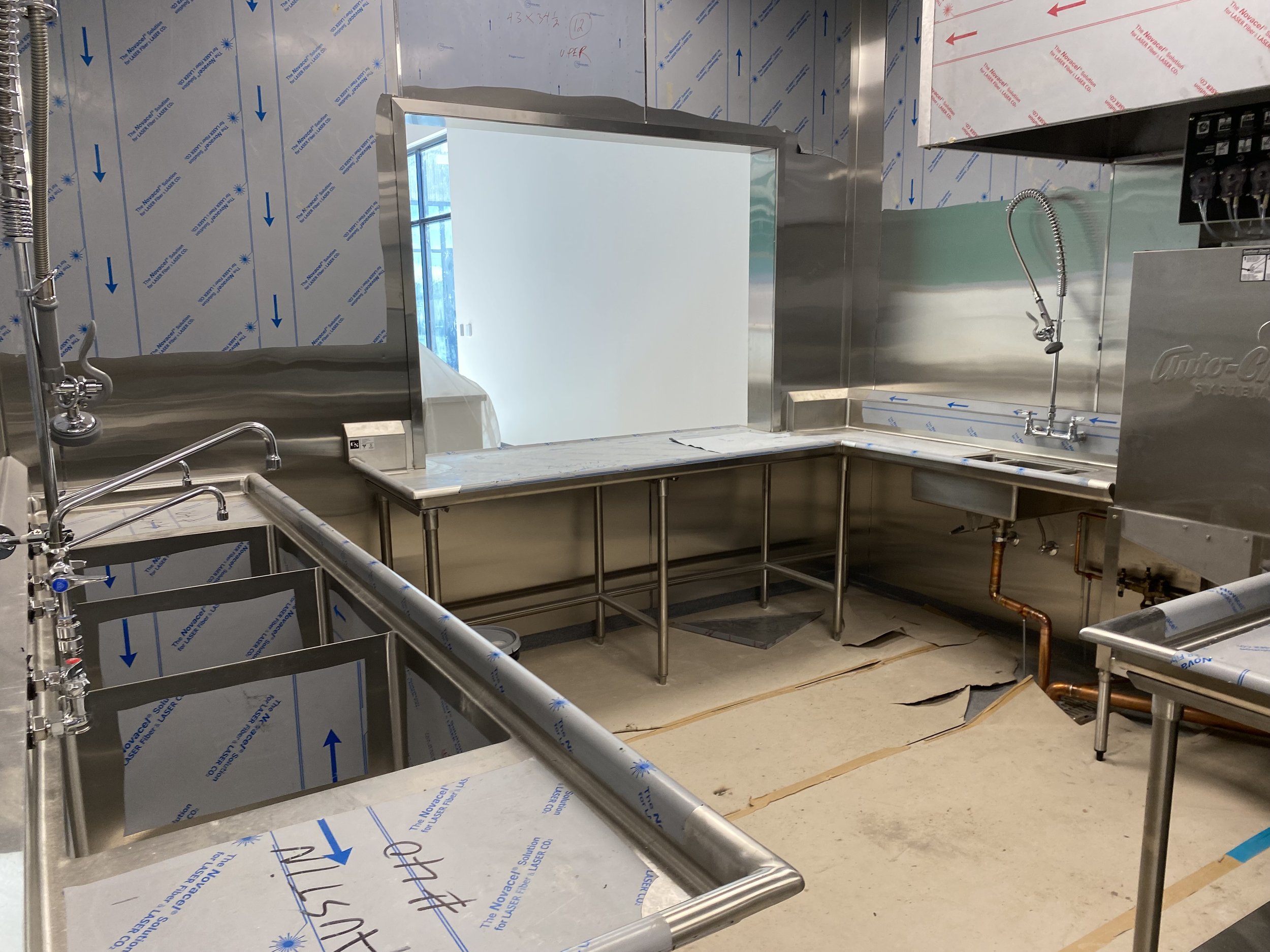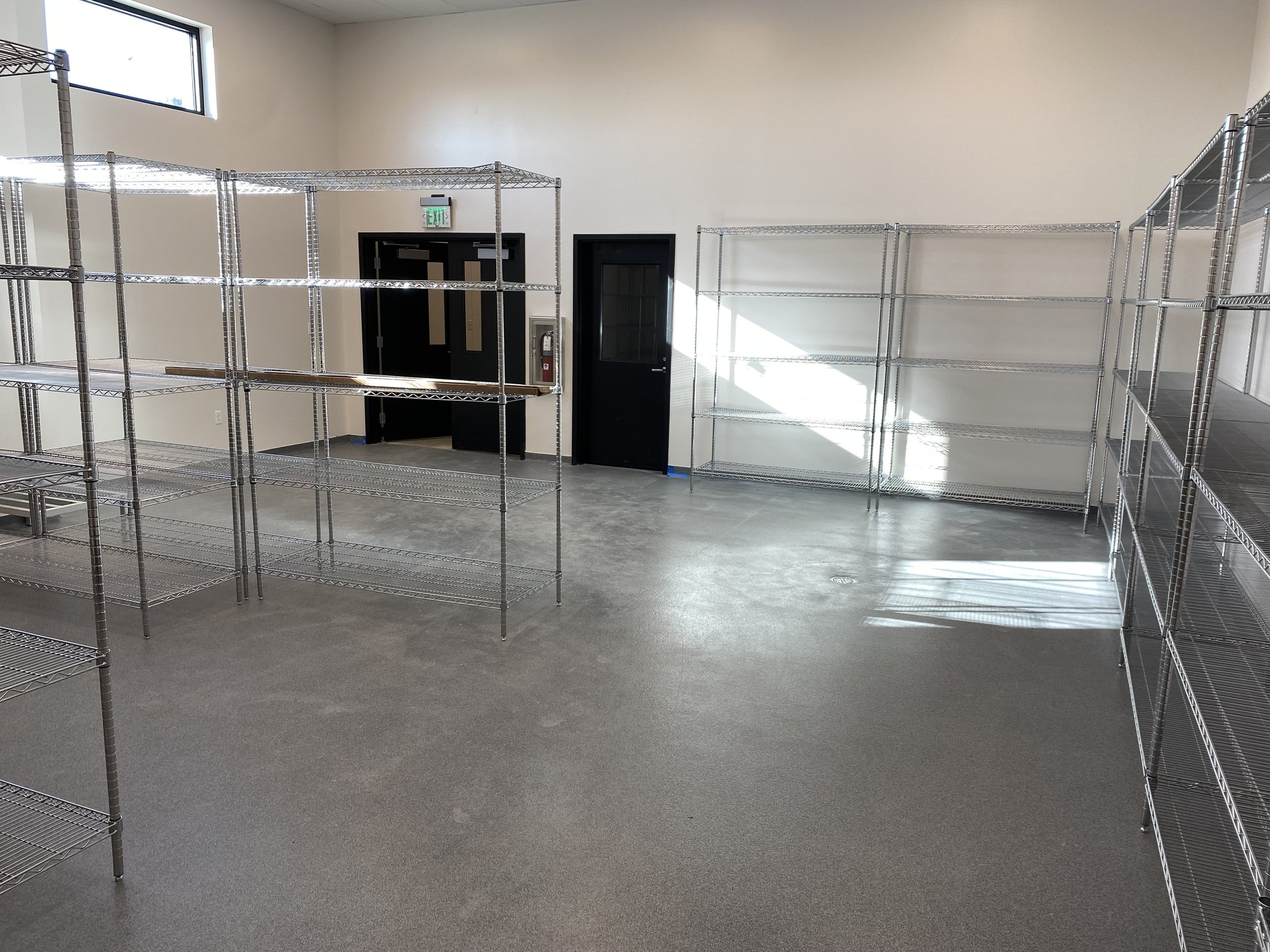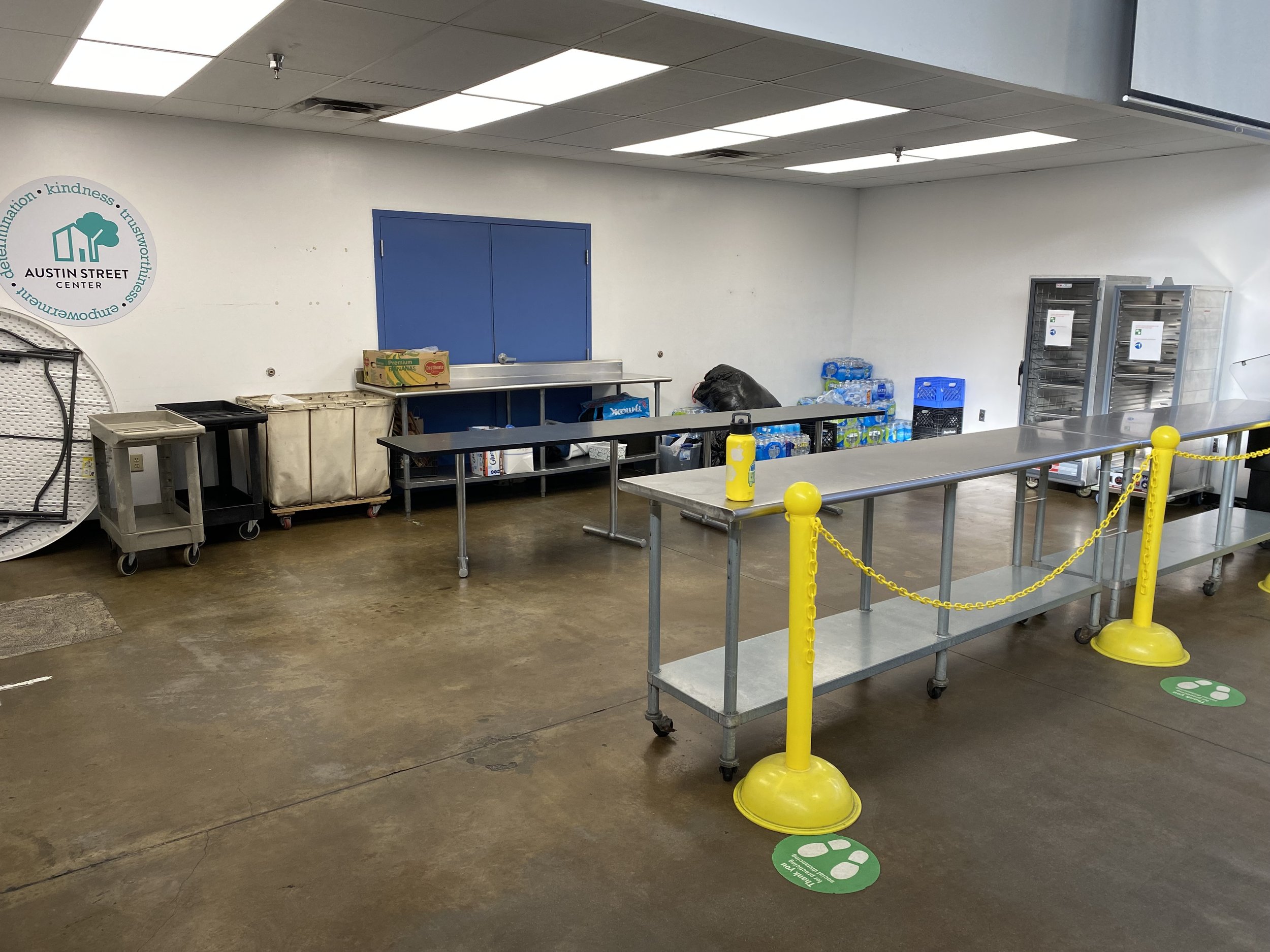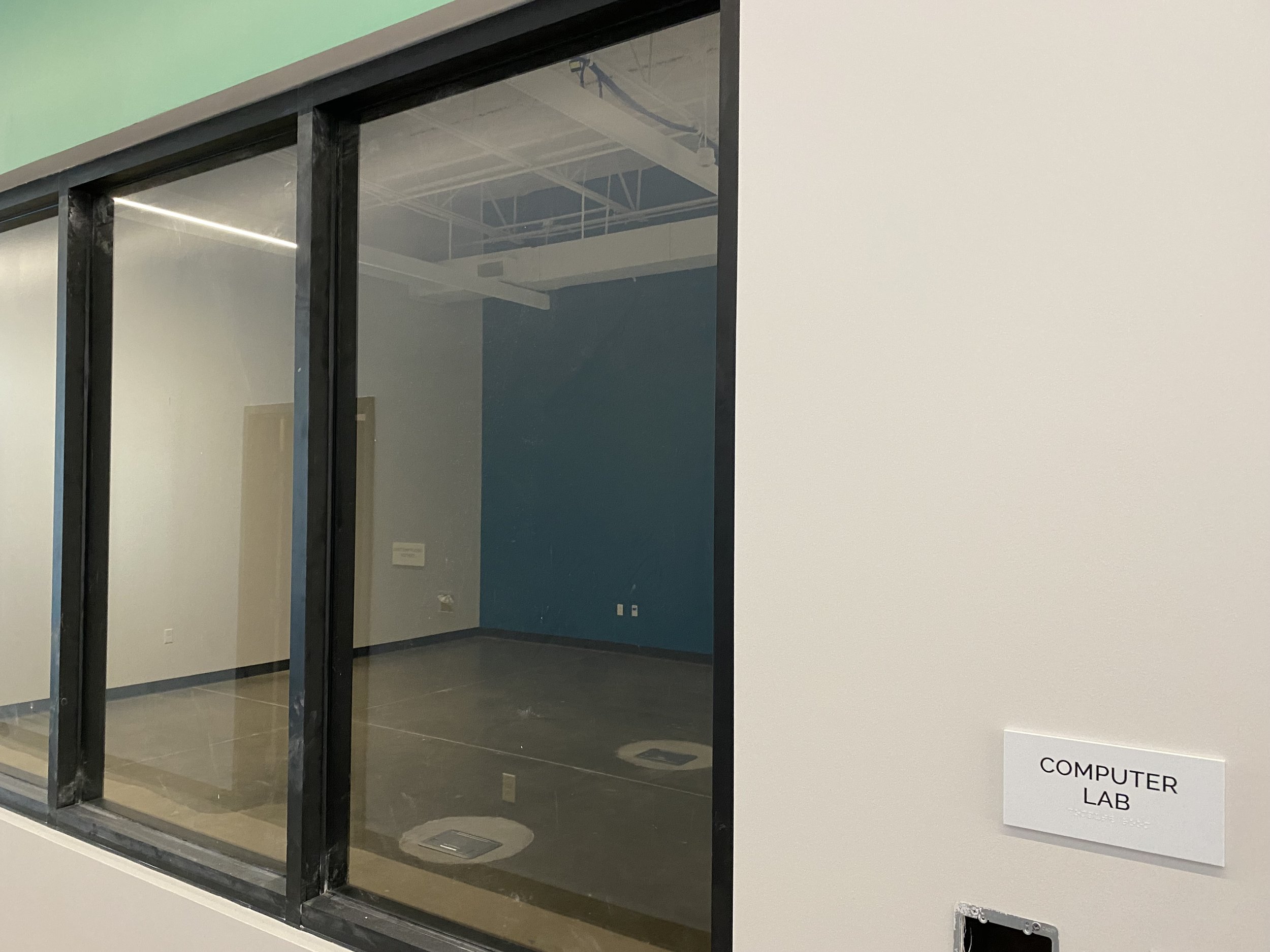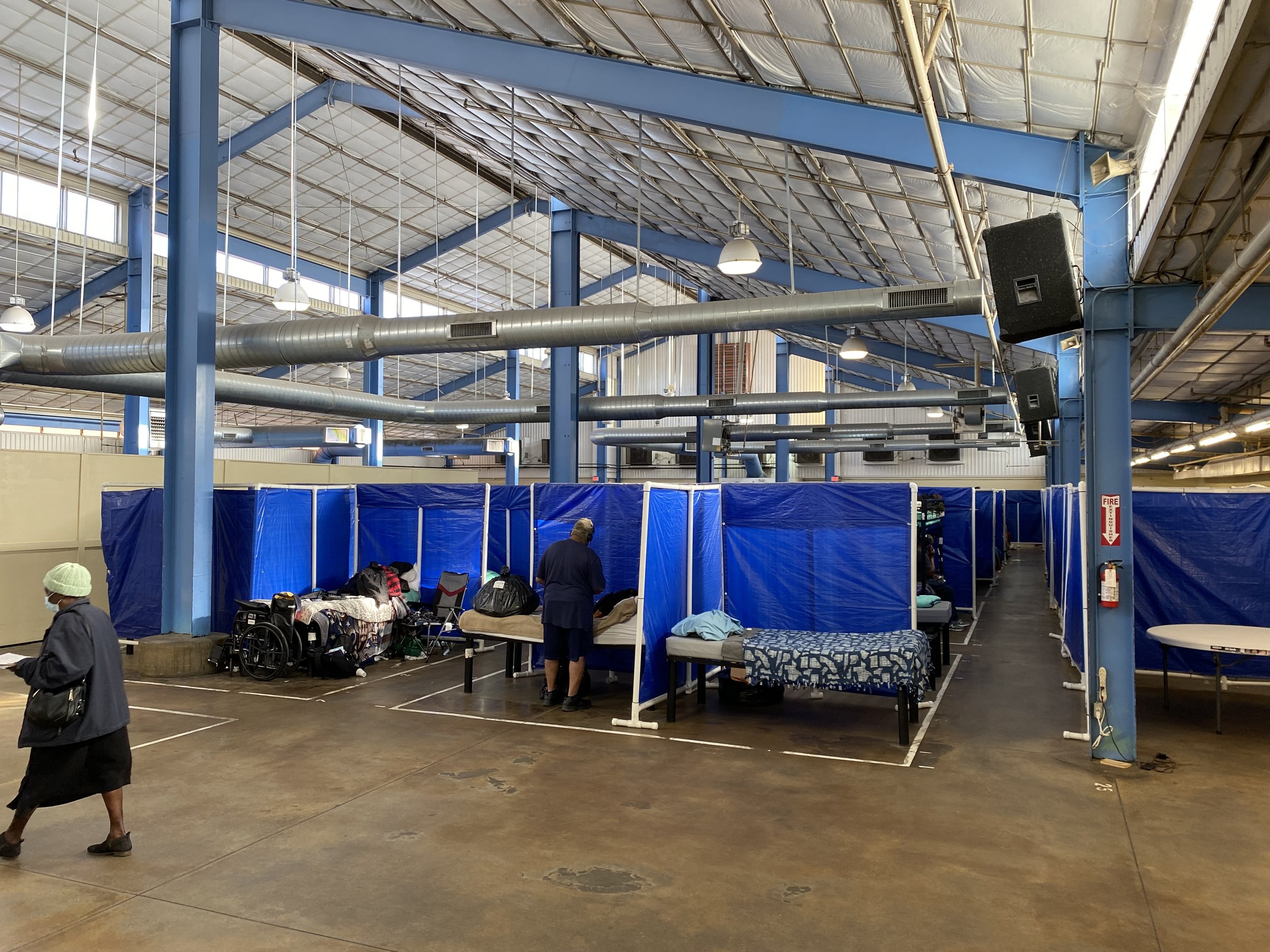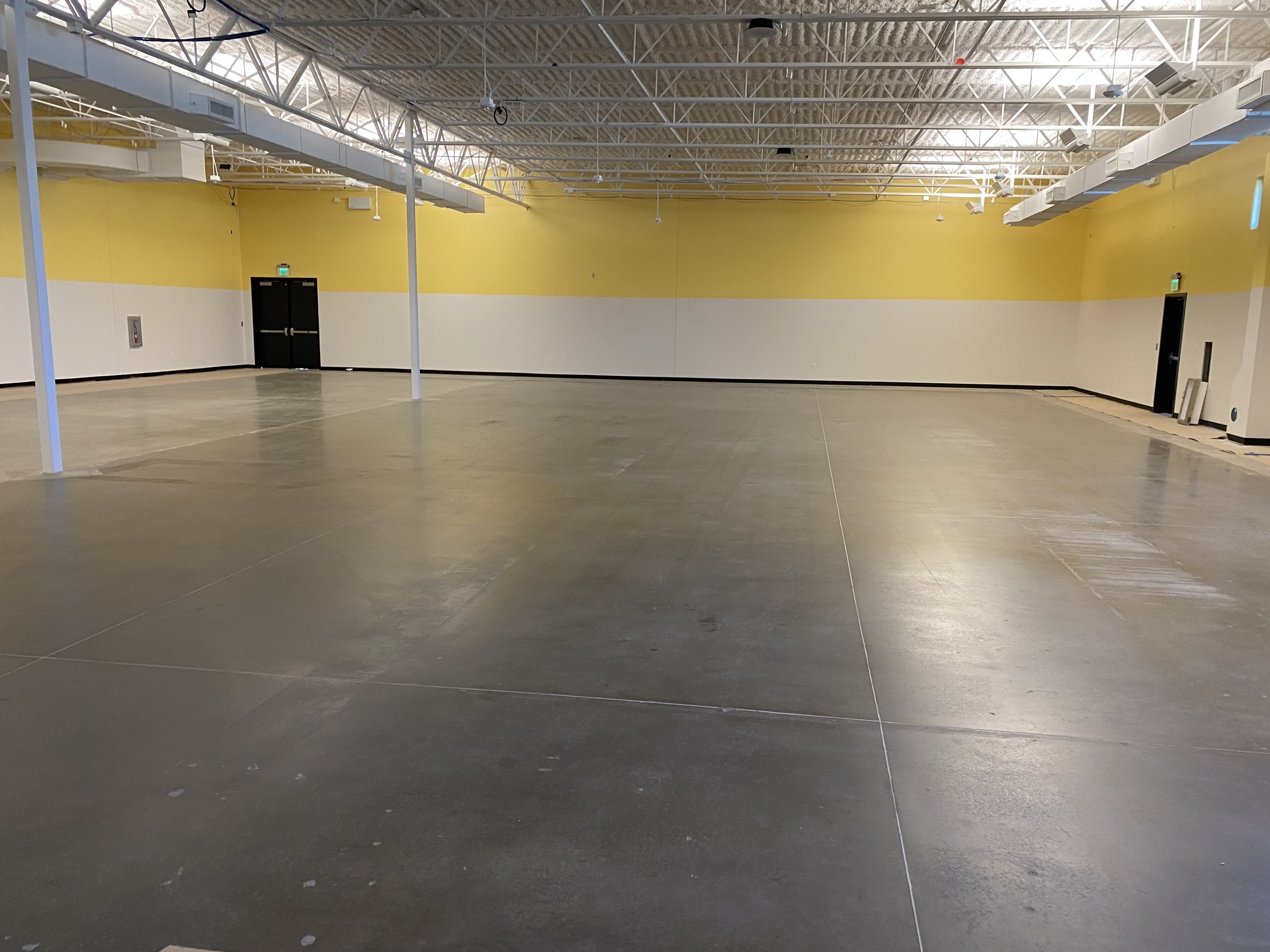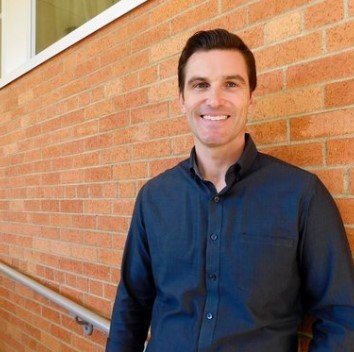Story and photos by Peter McKee.
>
“It is not OK for someone to be homeless.”
This driving belief has motivated the Austin Street Center since its creation over 35 years ago, and it has led to the aid and transformation of countless lives. What began as an emergency shelter for men over the age of 45, expanded to help women over the age of 18 only a few years later, providing food, clothing, a shower and a place to sleep to those who most needed it.

Austin Street Center New Building.
Today, Austin Street Center works mostly with housing-focused case management in addition to its emergency services, ensuring that long term plans are implemented with individuals to help them navigate the social and governmental landscapes and see them out of homelessness. Homelessness is an incredibly complex problem; there is no single factor that leaves someone without a roof over their head at night. Physical health, mental health, or past decisions in conjunction with societal, occupational and familial factors all contribute to people experiencing homelessness.
>
“They have to know someone cares.”
Keeping all of these factors in mind, Austin Street Center is committed to a holistic approach in helping these individuals, treating the person with dignity, respect and with the level of care that they need.
This is why Austin Street Center is so excited to announce that it is nearing the end of its “Help Them Home” campaign with its new facility that should be completed this summer. Austin Street Center, while increasing the number of people it can care for from 250 to nearly 500, will also be able to better fulfill its decades-long vision.
The flow of the space will be more open and streamlined, with the details of the movement of people and donations in and out of the facility meticulously planned. Austin Street Center’s facility will more than double in size from 28,000 sq. ft. to 60,000 sq. ft. There will be a massive commercial kitchen (previously they had no kitchen at all), in addition to a cafeteria for people to get food and to be able to sit, and separate areas for sleeping, and even rooms where individuals can seek medical care. Before this new facility, Parkland Hospital had designated a van for Austin Street Center to provide medical services, but now medical personnel will have rooms in the building to meet with people.
All of these details and many others that Austin Street Center deliberated on, matter. The new facility has been built with not just the care and provision of people going through homelessness in mind, but their dignity as well.

Teresa Thomas. Photo courtesy of Austin Street Center.
There is a belief at Austin Street Center that there is an inherent worthiness of every human being which goes beyond any social or economic status. Each person is valuable and Austin Street Center has strove to convey this to all of its occupants, starting with how they welcome people at the door, letting them know they are glad they are there. The goal of Austin Street Center is to re-instill the dignity of the person and show them that they are worth investing in, even in themselves.
Imagine our daily routines. How are we treated when we go to a restaurant or a doctor? As Teresa Thomas, Austin Street Center’s Director of Advancement Communications, noted, people in the current facility eat in their beds, and partitions between beds had only been put in place during the pandemic. She put this issue in perspective by saying that we do not eat dinner in our beds, and we are able to find privacy within our homes. Many of us take these simple experiences for granted, but providing people with more space at Austin Street Center’s new facility with designated areas for eating, sleeping, medical attention and even respite will mean so much to restoring a person’s sense of worth.

Myrshem George. Photo courtesy of Austin Street Center.
Myshem George, the Chief Advancement Officer of Austin Street Center, who oversaw the “Help Them Home” campaign, told of the extraordinary generosity of the people who supported the campaign and also emphasized that homelessness “is not an individual issue; it is a community issue.” Our responsibility is to look after one another and help the best way we can.
Austin Street Center has never shut down in over 30 years and continues to serve people experiencing homelessness and equip them for a future. Myrshem also said, “If we close our doors, where will they go?”
If the magnanimous work Austin Street Center is doing inspires you at all, and you would like to be involved in their mission of instilling dignity and a future for the unsheltered homeless of Dallas, please email asc.volunteer@austinstreet.org.
more good stories
Featured
Josh Taylor was deployed to the Middle East, flying missions into Iraq, Afghanistan, and Syria, when he realized that many of the people he spoke to were divided. It was 2018, and Josh had already been in the Armed Forces for over ten years, but he wanted to find a cause that could unite the nation. “Flying 65,000 miles and spending 300 hours in a machine gives somebody a moment to think,” Josh says. Eventually, he found his answer– our youth, and alongside them, our educators– have the strength to be the foundation for our country.
When Lisa Wong launched the STEM program at Trinity Christian Academy, her goal and passion was to teach the kids that they can use STEM fields to bless others in the world around them. She views her time as an investment in the future.
